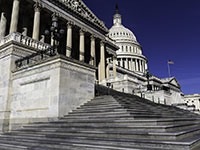The ripple effects of the Second Circuit’s landmark insider trading decision, United States v. Newman, 773 F.3d 438 (2d Cir. 2014), were felt again last week. On Tuesday, February 23, 2016, the U.S. Securities and Exchange Commission (“SEC” or the “Commission”) ruled that Former Neuberger Berman Analyst Sandeep “Sandy” Goyal, whom the SEC previously barred from the securities industry after he pled guilty to insider trading, could participate in the industry again. The SEC’s rare decision to lift an administrative bar order resulted from Newman, (previously discussed at length here), which led to Goyal’s criminal conviction being vacated and the civil claims against him being dropped by the SEC. Newman raised the bar for what prosecutors in tipper/tippee insider trading cases have to show by holding that tipper/tippee liability requires the tipper to receive a “personal benefit” amounting to a quid pro quo or pecuniary benefit in exchange for the tip and the tippee to know of that benefit. Despite the SEC’s decision to drop the administrative bar against Goyal in light of Newman, as recently as SEC Speaks on February 19-20, 2016, SEC Deputy of Enforcement Stephanie Avakian affirmed that insider trading cases “continue[] to be a priority” for the Commission. Nonetheless, the ripple effects of Newman continue to call the government’s ability to successfully bring both criminal and civil cases into question.
The Ripple Effects of U.S. v. Newman Continue: SEC Lifts Administrative Bar on Downstream Insider Trading Tippee and Tipper Requests that Third Circuit Vacate SEC Settlement




